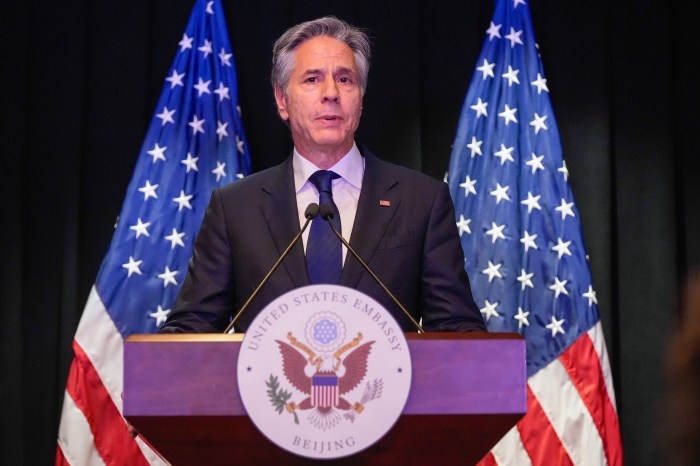JERUSALEM (Reuters) – Israeli Prime Minister Benjamin Netanyahu’s election rival Benny Gantz asked for additional time on Saturday to try to form a government with the long-time leader, to end more than a year of political deadlock.
A 28-day mandate to put together a governing coalition, following an inconclusive March 2 election, expires on April 14. Gantz, an ex-armed forces chief who heads the centrist Blue and White party, asked President Reuven Rivlin for a 14-day extension to the mandate.
Gantz had run on a promise not to serve in a government with Netanyahu, citing the prime minister’s indictment on corruption charges. Netanyahu denies those charges.
But in a reversal that dismayed many of his supporters, Gantz said the coronavirus crisis had made a national emergency government with Netanyahu’s right-wing Likud party an imperative.
“The political, health and social crisis have brought me to the decision that even at a heavy political and personal price, I will do all I can to establish a government with the Likud,” Gantz wrote in a letter to the president, published by his party.
Rivlin gave no immediate word on whether he would grant more time to Gantz, who in his letter said the two political rivals appeared close to a final agreement.
According to Israeli media reports, the parties have already agreed on a power-sharing deal in which Netanyahu would serve as prime minister for 18 months, after which Gantz would take over. Israel has held three inconclusive elections since last April.
With more than 10,000 reported cases of COVID-19 and 101 deaths, Israel’s tight restrictions on movement aimed at curbing the coronavirus spread have forced many businesses to shut down and have sent unemployment rates soaring to about 25%.
(Reporting by Maayan Lubell; Editing by Jeffrey Heller and Hugh Lawson)


















